The epidemic drags down the economy, medical and social welfare, and transgender countries in Asia are the first to suffer
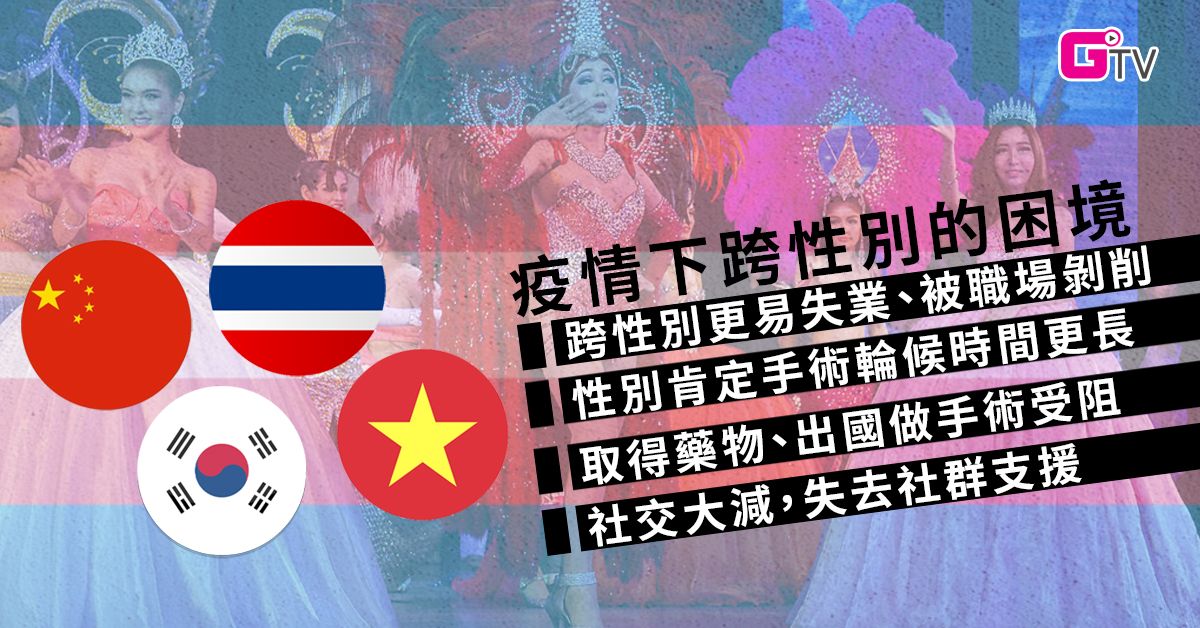
Written by: Nicole
Text Editor: Claudia
Website Editor: EQ
The global epidemic has been raging for many years and has not been contained. Not only has the economy and people's livelihood of various countries been hit hard, but the epidemic prevention measures have also deepened the alienation and isolation of people, and made the existing inequality in society even worse. Many local and overseas studies have found that during the epidemic, gender/gender minorities are in a more unequal and oppressive situation in terms of medical treatment, social interaction, and employment. For example, transgender people are more likely to be unemployed and have their wages deducted, and medical resources are scarce. Longer waiting times for "non-emergency services" such as gender-affirming surgeries are causing physical and psychological suffering for transgender people. Gender Empowerment, a local transgender organization, discussed the impact of the epidemic on transgender people in Asia in October last year. It not only outlined the common plight of the transgender community in the face of the epidemic, but also analyzed Thailand, China, and South Korea in particular. Transgender people in other places face different social oppression due to different national conditions.
Follow GDotTV Telegram Channel,
Stay up-to-date with the latest news on G-spot TV!
The lack of job security for transgender people aggravates social discrimination
At the socio-economic level, the lack of robust gender recognition systems in many countries and regions makes the rights of transgender people more vulnerable to exploitation. In Hong Kong, for example, the government requires transgender people to complete a full set of gender-affirming surgery before they can change their gender on their ID cards. Not only does this cause inconvenience in the lives of transgender people, but it also makes them more vulnerable to limited job choices and difficulty finding new jobs due to the prejudice of some employers in their employment. The "Gender Space" study pointed out that due to the insufficient gender recognition system and social prejudice, many transgender people in Southeast Asia can only work in entertainment jobs or part-time jobs with unstable livelihoods, lacking workplace benefits and security, especially in the entertainment, tourism and catering industries under the epidemic. Bear the brunt. The Human Rights Campaign Foundation in the United States has also studied the impact of the epidemic on the gender/ gender minority in the United States. More than half of the transgender people surveyed have had their working hours deducted, and 20% of the transgender respondents have lost their jobs due to the epidemic.
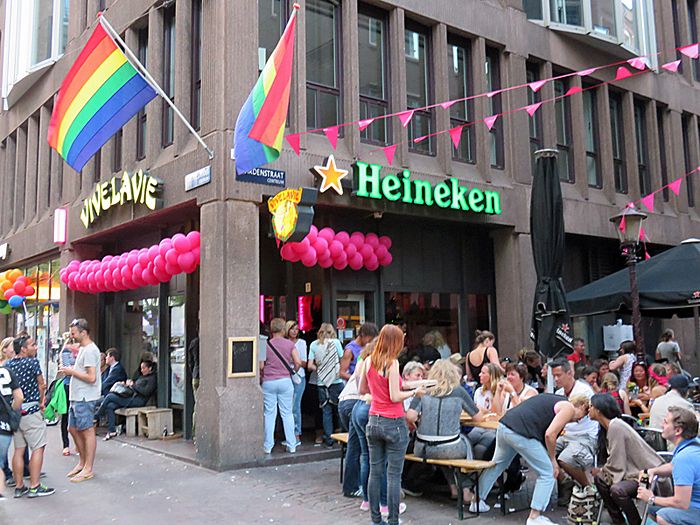
In order to avoid family conflicts, many transgender people choose to move out of their families of origin and live independently. However, the epidemic has hampered global travel, and many transgender performers whose main customers are tourists have suffered a setback, seriously affecting their livelihoods and even losing their jobs. In China and Vietnam, transgender youths who have lost their income because they cannot afford the rent are forced to move back home, adding to family tensions and emotional distress.
Although society is more accepting of transgender people than before, under the severe epidemic, the discrimination they encounter has become increasingly serious. In May 2020, when a confirmed case of new coronary pneumonia was found in a gay bar in South Korea, the media immediately labelled the incident as "the spread of the virus in a gay bar", linking the epidemic to gender/gender niches. Public pressure caused the sex/gender minorities who had patronized the bar to refuse testing for fear of their identities being exposed. Stigma not only does not help control the spread of the epidemic, but also deepens the exclusion and discrimination against gender/gender minorities in South Korean society.
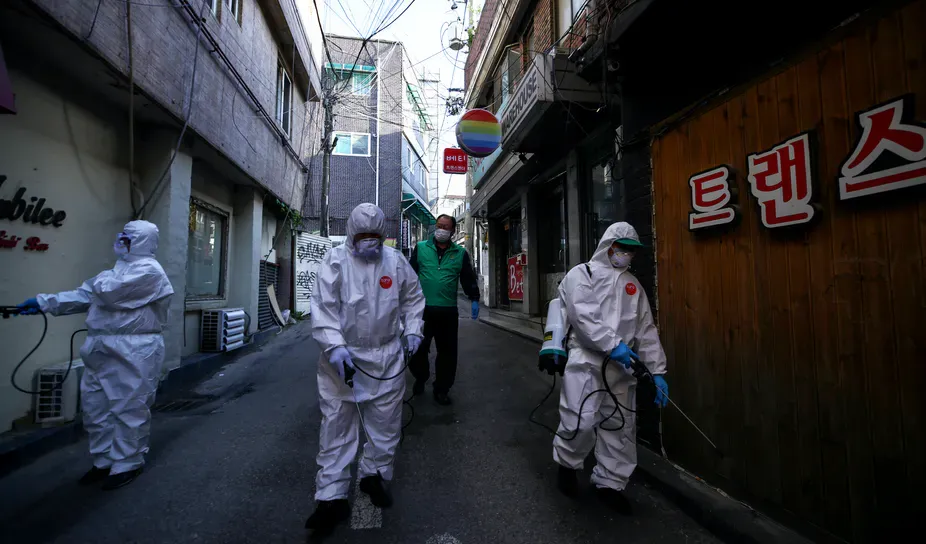
Under the epidemic, medical resources are tight, gender affirmation surgery is waiting for no period
To make their bodies more in line with their gender identity, some transgender people regularly inject or take hormones. However, in places such as Vietnam and China, it is difficult for transgender people to obtain hormones legally, and medical resources are mostly concentrated in big cities. Therefore, some people can only buy hormones from the black market, or often travel long distances across cities and provinces to find medical support. . Transgender people in remote and impoverished areas already have difficulty seeking medical care. During the epidemic, traffic was blocked and medical resources were scarce, making the situation even more severe.
In addition, many medical services defined as "non-urgent", including gender-affirming surgery, were forced to be postponed or even suspended due to the epidemic, so that resources can be allocated to patients with new coronary pneumonia. Coupled with the suspension of flights and customs closures in various countries, transgender people who plan to go to Thailand or other countries for gender affirmation surgery have been blocked from traveling and waiting indefinitely. In Hong Kong, the Prince of Wales Hospital, which provides psychiatric assessment and medical services for patients with gender dysphoria, can perform about 20 gender-affirming surgeries every year. Before the epidemic, the average waiting time was 70 weeks (about 1.3 years). Surgical services have been limited and waiting times have become longer.
The administrative procedures of various governments in the medical field are also inconvenient for transgender people. For example, the South Korean government uses the method of ID card registration to provide citizens with anti-epidemic supplies and disease testing, but many transgender people who cannot change their gender on their ID cards are discouraged and unable to benefit.
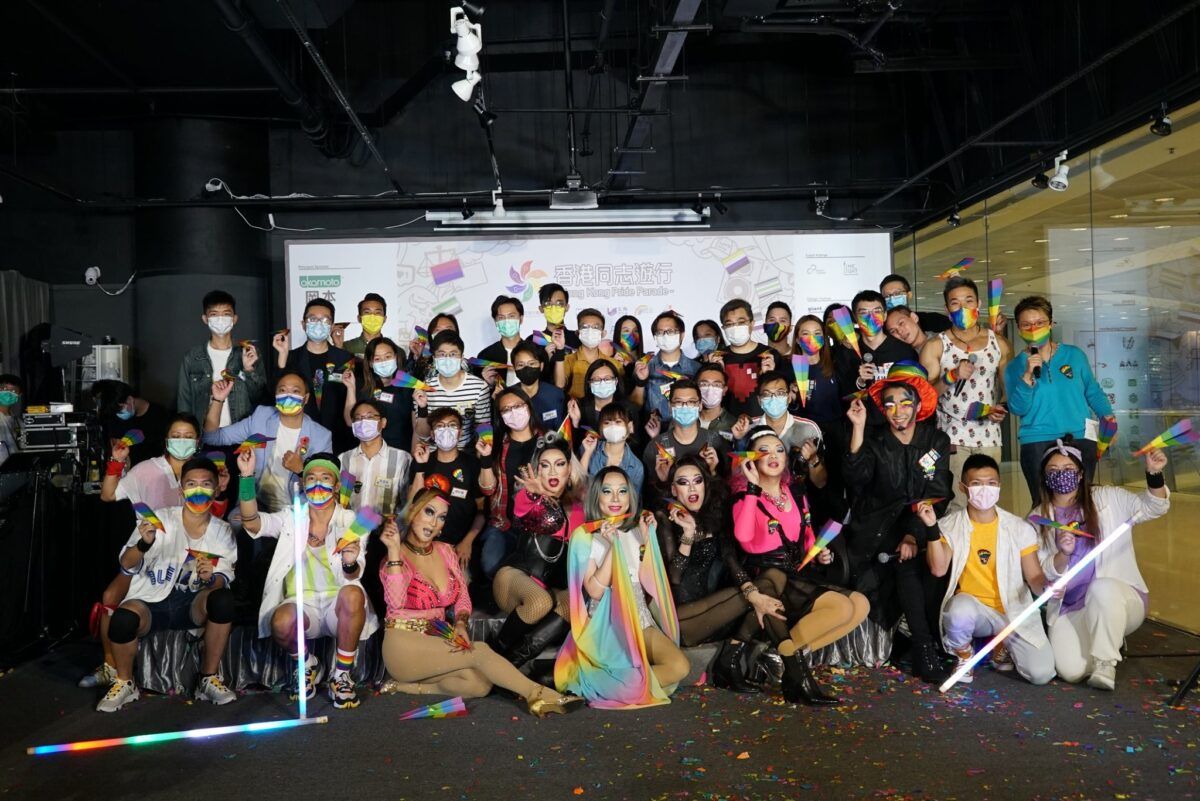
Point G requires working capital,
Click here to learn about the N methods that support us
Difficulty maintaining normal social relationships/Transformation of different organizations
Under the epidemic, it is difficult for transgender people to release the pressure of their gender identity through social gatherings, support groups and other occasions, which makes their mental health more likely to deteriorate. In China, some parents send their children to boarding schools that claim to be able to provide "straightening" treatment. Even if their children are physically and mentally treated inhumanely at the school, it is difficult for them to go home due to the raging epidemic, and it is even more difficult for them to seek help early.
For gender/gender niche organizations that provide mutual aid services, gatherings, lectures, etc., the epidemic has forced them to change their models and conduct them online. In Hong Kong, some public events focusing on gender/gender minorities were forced to cancel or change due to the epidemic. For example, the Hong Kong Gay Parade originally scheduled to be held in 2020 was not approved for the first time in 10 years due to epidemic prevention reasons; another large event in Hong Kong in the same year, "Pink Dot", will also be held in the form of online streaming.
These activities allow Gender/Gender minorities to connect with people in more familiar circles, which help to build self-identity and a sense of community belonging, which cannot be replaced by other occasions. The epidemic has also caused the gender/sex minority to lose the "gathering point" to connect with the community, and social life has been greatly affected. Taking Hong Kong as an example, many bars were struggling to operate under the epidemic. The gay bar "ZerOne" had no choice but to close in early 2021, leaving gay regular customers without a good place to go.
The fifth wave of the epidemic has broken out in geometric progression in recent months. Faced with the economic and social impacts brought about by the epidemic and epidemic prevention measures, marginalized groups such as gender/gender minorities often bear the brunt. The difficulties they face need the government and social welfare organizations to face up to and provide relevant support to tide over the difficulties together.
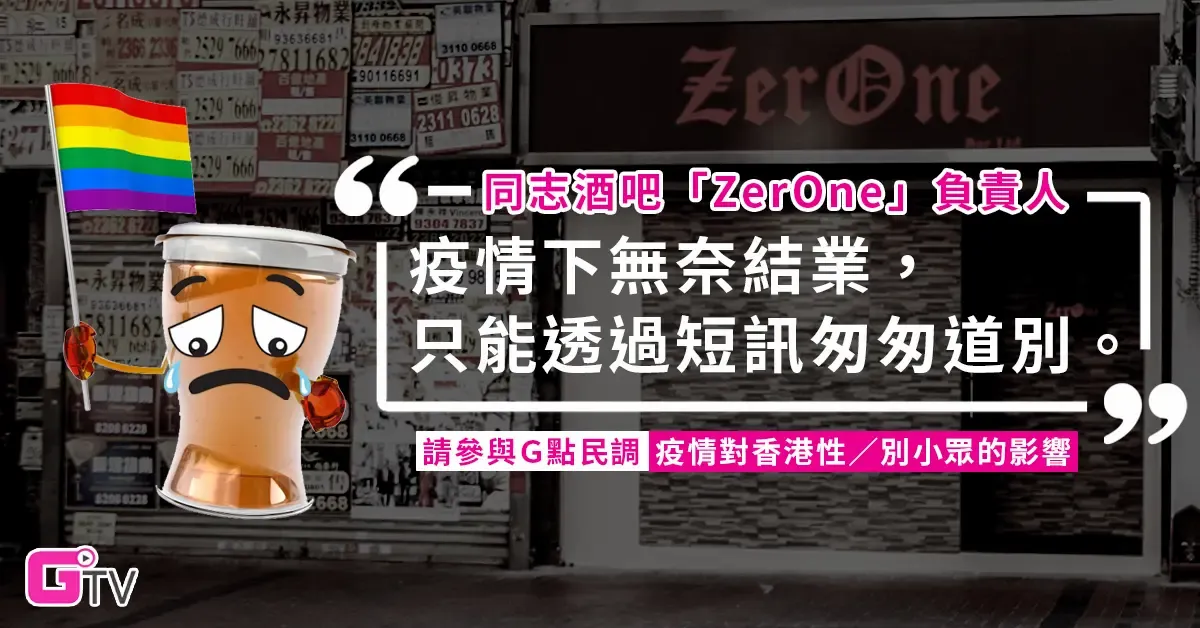
Further reading: [Epidemic] Gay bars have no choice but to close their studies, referring to sex/not being a minority or more depressing
Original link G-spot TV
Like my work? Don't forget to support and clap, let me know that you are with me on the road of creation. Keep this enthusiasm together!

- Author
- More